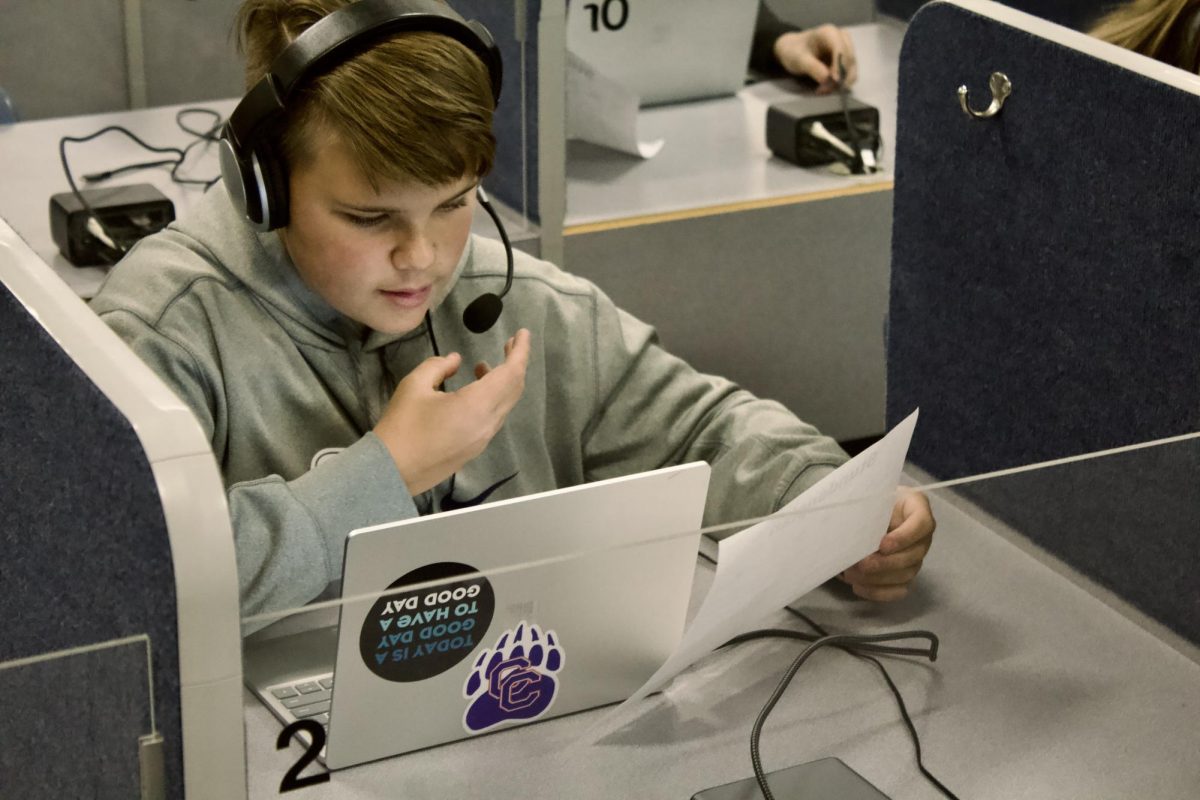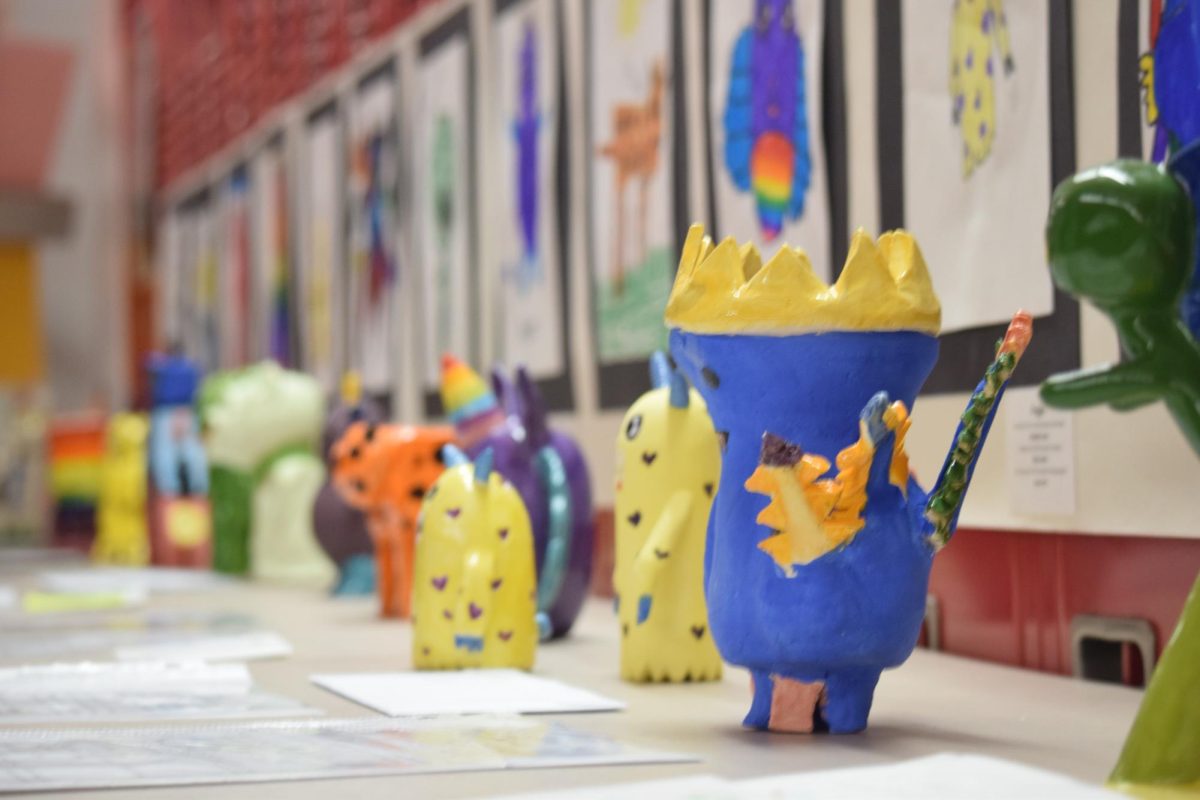The Language Lab, tucked underneath IC’s Library, removed its older desktop computers and received new technology updates to better adapt to student devices and ready the school for the imminent future of digital AP Tests.
Language classes host a mix of spoken, written, listening, and reading exams to enhance their students’ understanding of language and better prepare them for assessments. The new systems allow headphones with microphones to connect to a student’s laptop through a docking station.
“We have more freedom of what software we can use,” French teacher Angela Moreen said. “[When students use their own devices] it doesn’t take as long to log in to a different machine.”
World Language Department Coordinator Jamie Hofmeister played a part, alongside administrators and the tech center staff, to pick a new system.
“Since we have the one to one student computer ratio, it was starting to seem more obvious that, why aren’t we having students use their own devices?” Hofmeister said.
Some students liked the ease of using personal devices, and being in the lab was a plus, compared to having oral exams taken in classrooms.
“I thought it was much easier than having to take it in class,” senior AP French student Bjorn Petersen said. “I think it will be easy and fluid, and won’t be so hard to navigate.”
The department hopes that docking stations provide easier means for connecting computers to the microphone. Hofmeister was especially happy about their ability to charge laptops and connect to wifi. And paired with a lab that has built in sound dampening and individual workspaces, teachers believe it will supply a better, more focused testing experience.
“It’s really nice to be able to use the information or the resources that students have in the physical space that we have with the updated technology,” Hofmeister said. “We’re really lucky. Some schools, they’re recording…in a little cardboard box for some sound dampening.”
As more and more AP tests go digital, College Board is preparing to switch AP Languages over, according to Moreen, in two to three years. As of now, it’s hybrid – written portions are on paper, and audio, speaking, or conversational sections are digital.
However, junior AP French student Annelise Gavaghan isn’t sure about a fully electronic exam.
“I like being able to write out and hand write and have little scratch papers,” she said. “So I think it’ll be worse if we have to do it completely digitally.”
Petersen agreed; he believes because paper remains foundationally essential. “Completely digitizing AP tests is going to hurt the future, because everyone learns differently and I feel like paper is just the fundamental way to learn,” he said.
Previously outfitted with older desktop computers, the old system removal additionally means more workspace for students. Some speaking exams involve a short planning period to write down thoughts and talking points, and replacing a mouse and keyboard with a small laptop opens more space for preparation.
“It makes it easier for kids to focus on the test and not on how to use the technology associated with taking the test,” Moreen said.








